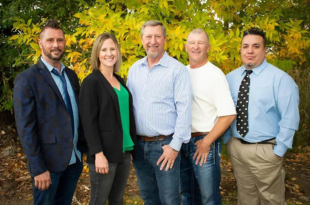Colorado Surety Bond

8:30am - 5:00pm Mon-Fri
We'll Reply in 15min*
Index
Contact Us
Phone
303-421-5123
Location
9035 Wadsworth Parkway
Suite 2730B
Westminster, CO 80021
If you are a contractor or a business owner in Colorado, you may need to obtain a surety bond to guarantee your performance, compliance, or payment obligations.
A surety bond is a contract between three parties: the principal (you), the obligee (the entity requiring the bond), and the surety (the company providing the bond). The surety bond protects the obligee from financial losses if the principal fails to fulfill their contractual duties.
In Colorado, surety bond requirements vary by industry and generally depend on the amount of work or services provided. For example, a property developer in Colorado may need to obtain a performance bond or a contractor's license bond. Similarly, if you run an auto dealership in Colorado, you may be required to purchase an automobile dealer bond before you can open your dealership.
We Have the Best Deals on Surety Bonds in Colorado
If you are looking for the best deals on surety bonds in Colorado, look no further than 3R Insurance Agency. We offer competitive rates for all types of surety bonds in Colorado, including construction, contractor license, and auto dealer bonds.
At 3R Insurance Agency, it is our mission to provide comprehensive and affordable coverage for your business or project. We understand the importance of timely bonding services, so we strive to offer fast processing times and easy online applications.
Contact us today to start the bonding process or learn more about our surety bond services in Colorado.
We look forward to working with you!
Who Needs a Surety Bond in Colorado?
In Colorado, surety bond requirements vary depending on the type of business or project. If you are a business owner or contractor in the following industries, you may need to obtain a surety bond.
- Construction contractors
- Auto dealers
- Home improvement contractors
- Mortgage brokers
- Real estate agents
- Collection agencies
- Funeral directors
- Property management companies
- Public adjusters and insurance agents
- Security guards
- Auctioneers
- Precious metals dealers
- Employment placement services
- Bankers and financial advisors
- Professional engineers and architects.
If you are unsure whether or not you need a surety bond in Colorado, speak to an experienced insurance agent who can provide more information or help you find the right bonding solution for your business.
How Surety Bonds Work in Colorado
Surety bonds are used to guarantee the performance of a job or project in Colorado. If you are found to be in breach of your contractual duties, the surety company providing the bond can step in and make you whole.
For example, say you agree to repair a roof as part of a home construction project. When you are finished, an inspector may discover that you did not complete the job according to agreed-upon standards. In this case, the surety company could be obligated to cover the cost of repairs or any other damages incurred due to your negligence.
The Principal, Obligee, and Surety
When you purchase a surety bond in Colorado, three parties are involved: the principal, the obligee, and the surety.
The principal is typically the contractor or business owner who must obtain a bond, usually you.
The obligee is the entity requiring the bond – it could be a government agency, an individual, or even another business.
The surety is the company providing the bond and is usually an insurance company or financial institution. The surety agrees to provide coverage if the principal fails to fulfill their contractual duties.
What Happens When a Claim Is Filed?
If an obligee files a claim against your bond, the surety company providing the bond will investigate the claim. If the surety finds that you did breach your contractual duties, they may be obligated to pay for damages up to the full amount of the bond. The surety may also seek reimbursement from you for any payments made related to the claim.
Types Of Surety Bonds in Colorado
The type of surety bond you need depends on the industry, location, and requirements of the obligee.
License and Permit Bonds
These bonds are required for certain professions or activities that need to obtain a license or a permit from a state or local authority. For example, auto dealers, contractors, collection agencies, public adjusters and debt managers need to post a license bond to operate legally in Colorado. These bonds protect the public and the state from any fraud, misconduct or violation of laws or regulations by the bonded party.
Contract Bonds
Contract bonds are required for contractors who bid on or perform work on public construction projects. They ensure that the contractor will complete the project according to the contract terms and pay all subcontractors, suppliers and laborers. The most common contract bonds are:
- Bid Bonds: guarantee that the bidder will enter into the contract if it is awarded
- Performance Bonds: guarantee that the contractor will complete their obligations and properly execute all work according to the terms of the contract
- Payment Bonds: guarantee that subcontractors, suppliers and laborers are paid in full for their part of the project.
Contract bonds are required for any Colorado public construction project over $100,000.
Court Bonds
These bonds are issued when a court requires the principal to post a surety bond as part of a legal proceeding. Common types of court bonds include appeal bonds, probate bonds, and fiduciary bonds. In each case, the bond helps ensure that the principal will comply with their obligations as stated in the court order.
Fidelity Bonds
Fidelity bonds are usually required by employers and protect their business from employee theft or fraud. These bonds may also be referred to as dishonesty bonds, crime insurance, or a fidelity bond program.
Miscellaneous Bonds
Miscellaneous bonds are required for a variety of purposes, such as customs clearance, lost instrument indemnity, or when an individual is performing services on behalf of another party. The bond protects the obligee from financial losses if the principal fails to perform their duties as required.
Surety Bonds Vs Insurance
Insurance is a contract between two parties: the insured and the insurer. The insured is the person or entity that pays a premium to the insurer in exchange for coverage against certain risks, such as fire, theft, or liability. The insurer is the person or entity that agrees to pay the insured for any losses or damages that occur due to the covered risks. Insurance protects the insured from financial losses due to unforeseen events or accidents.
The main difference between surety bonds and insurance is that surety bonds involve a third party (the surety) that acts as a guarantor for the principal's performance, while insurance involves only two parties (the insured and the insurer) that share the risk of loss.
Another difference is that surety bonds are not intended to cover losses but rather to ensure compliance with an obligation, while insurance is intended to cover losses that may arise from various risks. Furthermore, surety bonds are usually required by law or contract, while insurance is usually optional or voluntary.
What Is the Cost of Surety Bonds in Colorado?
The cost of surety bonds in Colorado depends on several factors. These Include:
- The type and amount of the bond required: Complex and higher-risk bonds typically require a larger premium.
- The applicant's credit score and financial history: Credit scores are important in surety underwriting, as they indicate the applicant’s financial responsibility.
- The applicant's industry experience and expertise: Sureties evaluate the applicant’s experience, expertise and level of professionalism in the industry.
- The applicant's previous record of claims against surety bonds: Sureties will want to know if the applicant has had any prior losses or claims against their previous surety bonds.
- The surety's assessment of the risk associated with issuing the bond: Sureties assess each applicant’s level of risk before issuing a bond, taking into account the applicant’s financial strength and industry experience.
- The amount of time it takes to process the bond application: The time it takes to process a surety bond application will vary depending on the complexity of the bond and the underwriting requirements.
- The surety's specific underwriting and pricing criteria: Each surety has its own set of underwriting and pricing criteria, which affects the cost of a surety bond.
On average, surety bonds in Colorado start at around $250 and can reach up to several thousand dollars depending on the type of bond and the applicant's qualifications. The more complex the bond and the higher the risk associated with it, the higher the premium will be.
Get a Free Quote for Surety Bonds in Colorado
The skilled agents at 3R Insurance are ready to help you get the best surety bond for your business at a great rate. We work with several top-rated sureties to ensure that you get the best coverage and provide fast, reliable service. Get in touch today to receive your free quote!





